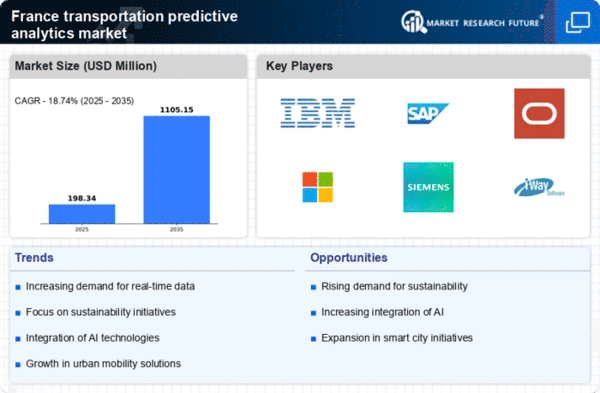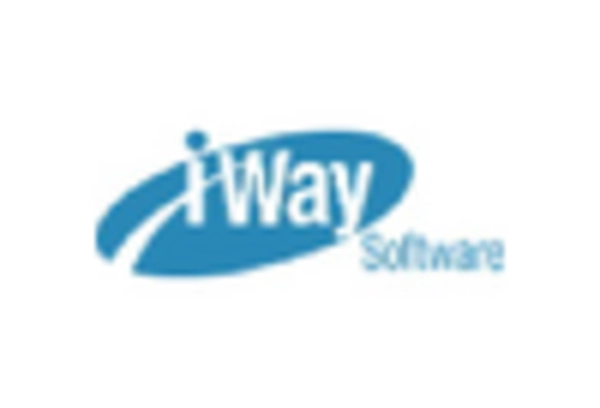Rising Demand for Real-Time Data
The transportation predictive-analytics market in France experiences a notable surge in demand for real-time data analytics. This trend is driven by the increasing need for efficient traffic management and enhanced logistics operations. As urbanization accelerates, cities face mounting pressure to optimize transportation systems. The French government has invested approximately €1 billion in smart city initiatives, which include the deployment of predictive analytics tools. These tools enable stakeholders to analyze traffic patterns, predict congestion, and improve public transport schedules. Consequently, the transportation predictive-analytics market is poised for growth, as organizations seek to leverage real-time insights to enhance operational efficiency and customer satisfaction.
Increased Focus on Cost Reduction
Cost reduction remains a critical driver for the transportation predictive-analytics market in France. Organizations are increasingly seeking ways to minimize operational costs while maintaining service quality. Predictive analytics offers insights that enable companies to optimize resource allocation, reduce fuel consumption, and enhance route planning. According to industry reports, companies utilizing predictive analytics have reported up to a 20% decrease in operational costs. This focus on cost efficiency is likely to propel the transportation predictive-analytics market forward, as businesses recognize the financial benefits of adopting data-driven decision-making processes.
Government Initiatives and Funding
Government initiatives play a pivotal role in shaping the transportation predictive-analytics market in France. The French government has launched several programs aimed at modernizing transportation infrastructure, with a focus on integrating advanced analytics. For instance, the 'France 2030' plan allocates €30 billion towards innovation in transportation, which includes funding for predictive analytics projects. This financial support encourages public and private sector collaboration, fostering innovation and the development of new technologies. As a result, the transportation predictive-analytics market is likely to expand, driven by increased investment in data-driven solutions that enhance safety, efficiency, and sustainability in transportation.
Advancements in IoT and Connectivity
The proliferation of Internet of Things (IoT) devices significantly influences the transportation predictive-analytics market in France. Enhanced connectivity among vehicles, infrastructure, and users facilitates the collection of vast amounts of data, which can be analyzed to improve transportation systems. The French government has initiated projects to deploy smart sensors and connected vehicles, aiming to create a more integrated transportation network. This technological advancement is expected to drive the transportation predictive-analytics market, as stakeholders leverage IoT data to optimize routes, reduce emissions, and enhance overall efficiency in transportation operations.
Growing Emphasis on Safety and Compliance
Safety and compliance are increasingly prioritized within the transportation predictive-analytics market in France. Regulatory bodies are mandating stricter safety standards, compelling transportation companies to adopt predictive analytics solutions to ensure compliance. The implementation of these analytics tools allows organizations to forecast potential safety issues and mitigate risks proactively. For example, the French Ministry of Transport has reported a 15% reduction in accidents attributed to the use of predictive analytics in fleet management. This trend indicates that the transportation predictive-analytics market is likely to grow as companies invest in technologies that enhance safety and regulatory compliance.
















